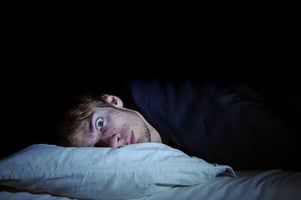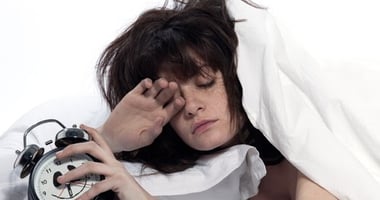Sleep problems are highly prevalent among Medicaid patients with serious mental illness and are...
Psychiatrist Offers Tips for Evaluating, Treating Sleep Problems in Patients
 |
“Sleep is a powerful biological drive but, paradoxically, is easily perturbed by a variety of processes. Psychiatric illnesses are one such influence, and … many psychiatric medications either interfere with sleep or can produce hypersomnia,” he wrote. To address sleep disturbances, Winkelman advised mental health professionals to first determine their patient’s chief sleep complaint followed by assessments of psychiatric, medical, neurological, and sleep-specific conditions.
“Treatment of sleep complaints is usually directed toward specific reversible causes when present (e.g., pain, mood or anxiety disorders, restless legs syndrome, sleep apnea, nocturia, thyroid disease) and proceeds to more generic treatments (cognitive-behavioral therapy [CBT], hypnotic medications, stimulants) if the initial approaches are not effective,” Winkelman wrote. “However, given the bidirectional relationship of sleep disturbance and psychiatric illness, such generic treatments may provide independent value for both the sleep disorder and psychiatric illness and should be considered for concomitant initial treatment.”
Winkelman concluded the article with recommendations for several treatment options for patients with insomnia—including cognitive-behavioral therapy for insomnia (CBT-I), recognized as a first-line therapy for patients with this disorder; and pharmacological therapies, including hypnotics for short-term use, and for long-term use, sedating antidepressants (trazodone, mirtazapine, doxepin), anticonvulsants (gabapentin), orexin antagonists (suvorexant), and melatonin agonists.
“Sleep disturbance is very common in patients with psychiatric illnesses, and thorough evaluation often leads to remediable causes. Treatment can improve both immediate quality of life and the course of underlying psychiatric illness,” he wrote.
For related information, see the Psychiatric News article “Overlapping Symptoms Complicate Diagnosis, Treatment of Psychiatric and Sleep Disorders.”
(Image: iStock/OcusFocus)
Follow Psychiatric News on Twitter!
And check out the new Psychiatric News Brief on Alexa-enabled devices.
And check out the new Psychiatric News Brief on Alexa-enabled devices.





